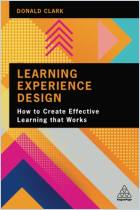Rejoignez getAbstract pour lire le résumé !

Rejoignez getAbstract pour lire le résumé !
Gabe Zichermann and Joselin Linder
The Gamification Revolution
How Leaders Leverage Game Mechanics to Crush the Competition
McGraw-Hill, 2013
Aperçu
Learn the techniques of gamification to build successful consumer and employee engagement.
Recommendation
Successful gamification – the business use of game-based mechanisms – considers both human psychology and the more concrete matters of how material looks and functions. Experts Gabe Zichermann and Joselin Linder spell out this process in accessible, engaging language. They explore the best uses of gamification, using illuminating stories about companies, organizations, governments and individuals. Zichermann and Linder practice what they preach, engaging you with compelling narratives, down-to-earth recommendations and actual games interspersed throughout the text. getAbstract recommends this manual covering the coming wave of gamification in employee training and customer motivation to start-ups, entrepreneurs, managers, marketing, HR professionals, and anyone looking for new ways to inspire and retain customers and employees.
Summary
About the Authors
Gabe Zichermannis CEO of Gamification Corp. He and Joselin Linder, who writes for NPR and AOL, co-wrote Game-Based Marketing.




















Comment on this summary